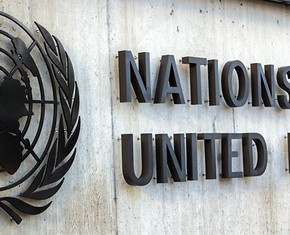The views expressed in our content reflect individual perspectives and do not represent the authoritative views of the Baha'i Faith.
When you were a child, you submitted to the moral authority of your parents. Now, as an adult, whose authority do you accept?
The civil laws of most lands give extraordinary powers to the parents of children, in exchange for certain assumptions:
- The parents will care for, feed, clothe and shelter their children, and not abuse them.
- Parents will formally educate children where possible, even with the help of the state.
- By setting an example, parents will teach their children to respect authority.
- Parents will treat children as people, not as slaves.
- Ideally, they will love their children and do what’s in their best interests.
These basic agreements and elements of education, in all its forms, ultimately teach respect for the authority of the parents and the teacher. Religion teaches that same respect—and applies it to every human being:
Even though we find a defective branch or leaf upon this tree of humanity or an imperfect blossom, it, nevertheless, belongs to this tree and not to another. Therefore, it is our duty to protect and cultivate this tree until it reaches perfection. If we examine its fruit and find it imperfect, we must strive to make it perfect. There are souls in the human world who are ignorant; we must make them knowing. Some growing upon the tree are weak and ailing; we must assist them toward health and recovery. If they are as infants in development, we must minister to them until they attain maturity. We should never detest and shun them as objectionable and unworthy. We must treat them with honor, respect and kindness; for God has created them … – Abdu’l-Baha, The Promulgation of Universal Peace, pp. 230-231.
But as adults, what replaces the authority of parents and teachers? In relation to all humankind, Baha’is believe that the divine prophets convey God’s authority and desires for our progress and happiness. Through His chosen messengers, we receive the knowledge and wisdom we need to educate us, guide us and sustain us. Every culture has at least one of those divine messengers, and they teach us progressively over time as humanity advances, just as teachers in the various grades in school teach us according to our current ages, maturity levels and capacities.
When we accept the authority of the most recent prophet, just as we do from a kind and loving parent or teacher, we recognize that he wishes only for the ultimate good of the world and all its peoples, the wealth and prosperity of every human being. Baha’u’llah wrote:
My object is none other than the betterment of the world and the tranquility of its peoples. The well-being of mankind, its peace and security, are unattainable unless and until its unity is firmly established. This unity can never be achieved so long as the counsels which the Pen of the Most High hath revealed are suffered to pass unheeded. – Gleanings from the Writings of Baha’u’llah, p. 286.
The “Pen of the Most High” is a reference to Baha’u’llah and all of the previous prophets, and his “counsels” are his writings and moral and spiritual teachings. Those teachings are an encyclopedia from God of stunning insight, and like the holy scriptures of the past they serve as the basis of entire moral codes, cultures and civilizations.
The goal and purpose of all these writings, councils and other Baha’i institutions is to assist all people to find God and discover meaning in their own lives, and to translate those spiritual teachings into actions that will help the world fulfill its glorious, unified and peaceful destiny.
You May Also Like
Comments

















Vitally important, in every sense!